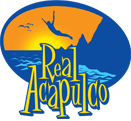Election Board to Check Campaigns for “Dirty Money”
(Chilpanchingo, AN, 22 November) The audit committee of the Guerrero Elections Board announced a review of all propaganda used by the gubernatorial candidates to be sure than no “dirty money” has filtered into the campaign coffers. If anyone appears to be using funds of doubtful origin, the same will be reported to the full Board for action. Each campaign has a ceiling of $2.5 million pesos (about US$300,000) from private contributors. Each must report any substantial private contribution to the Board. The government agency asserts that it has the legal tools at its disposal to prevent “dirty money” from seeping into the campaigns, but at the same time, it must worry that money from illicit activities can enter and leave the campaigns without leaving an audit trail. In addition, campaigns often overspend or squander resources, which may reflect purposeful leakage of money as easily as simple incompetence. Personnel from the audit committee of the Elections Board announced what they called “surprise visits” to the campaigns during next week, in election districts 6, 9 and 7.
Under the Mexican elections law, vote buying is illegal. Voters at the polls identify themselves by their voter or “IFE” card, a picture ID. Nevertheless, campaigns allegedly pay for the use of IFE cards from willing vote sellers. As insiders describe it, campaign volunteers present themselves at the polls with someone else’s ID card. To avoid problems, certain poll workers will be persuaded not to check the ID. Obviously, an emolument is involved. The price of a vote can be anywhere from a sandwich and a soft drink to $500 pesos, depending on who is the seller and how tight the election seems to be. Naturally, none of the money for vote buying comes from audited sources, nor is the expenditure recorded anywhere, so it is not subject to audit by the electoral authorities. The “budgetary” requirement has been estimated at between $30-$50 million pesos per 100,000 votes.

